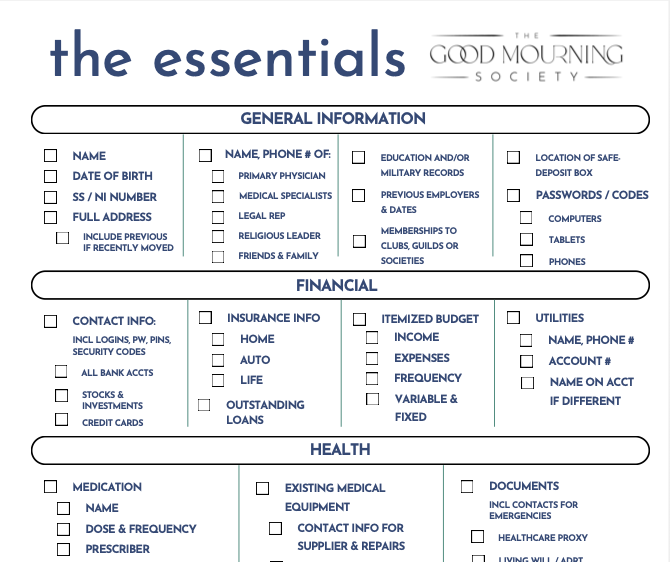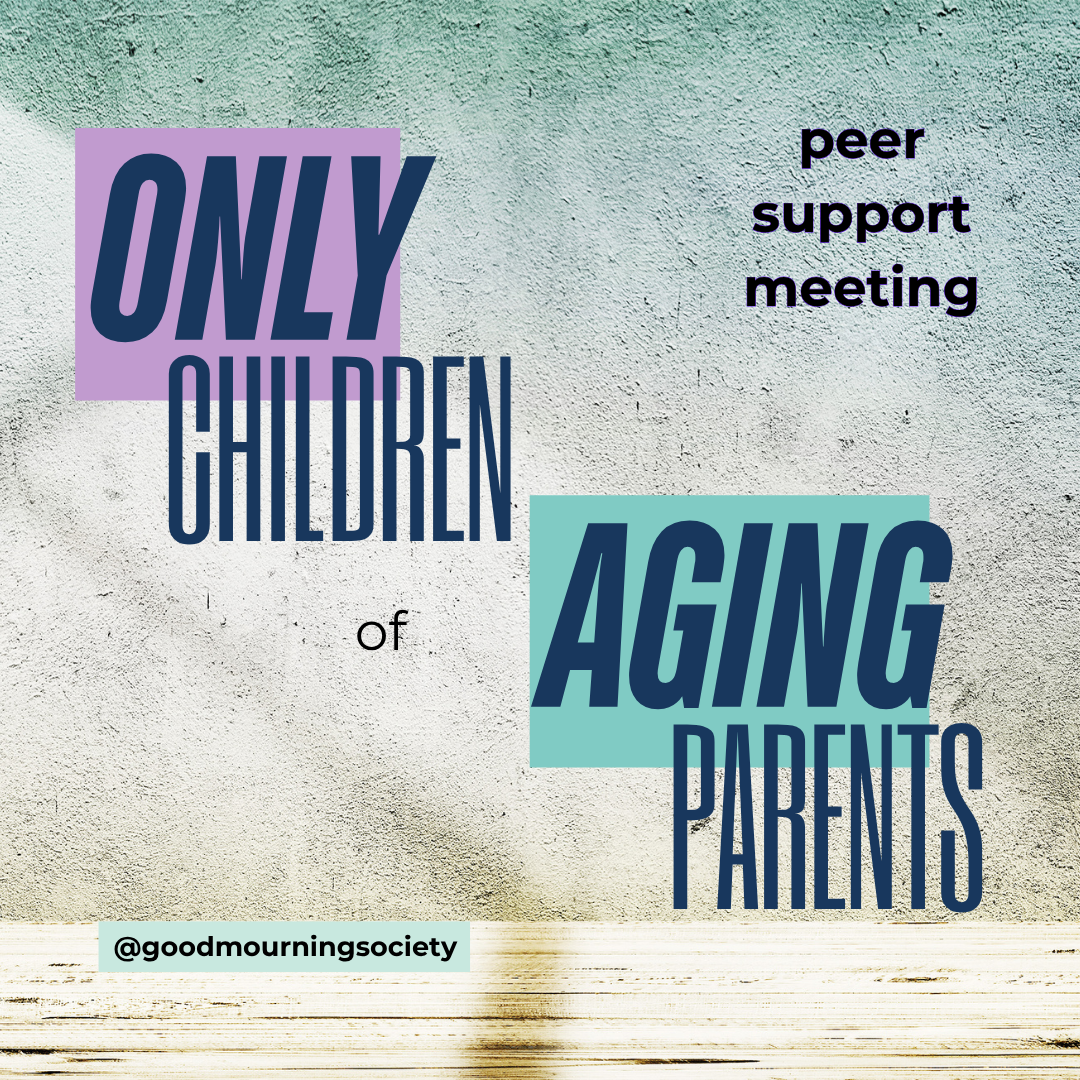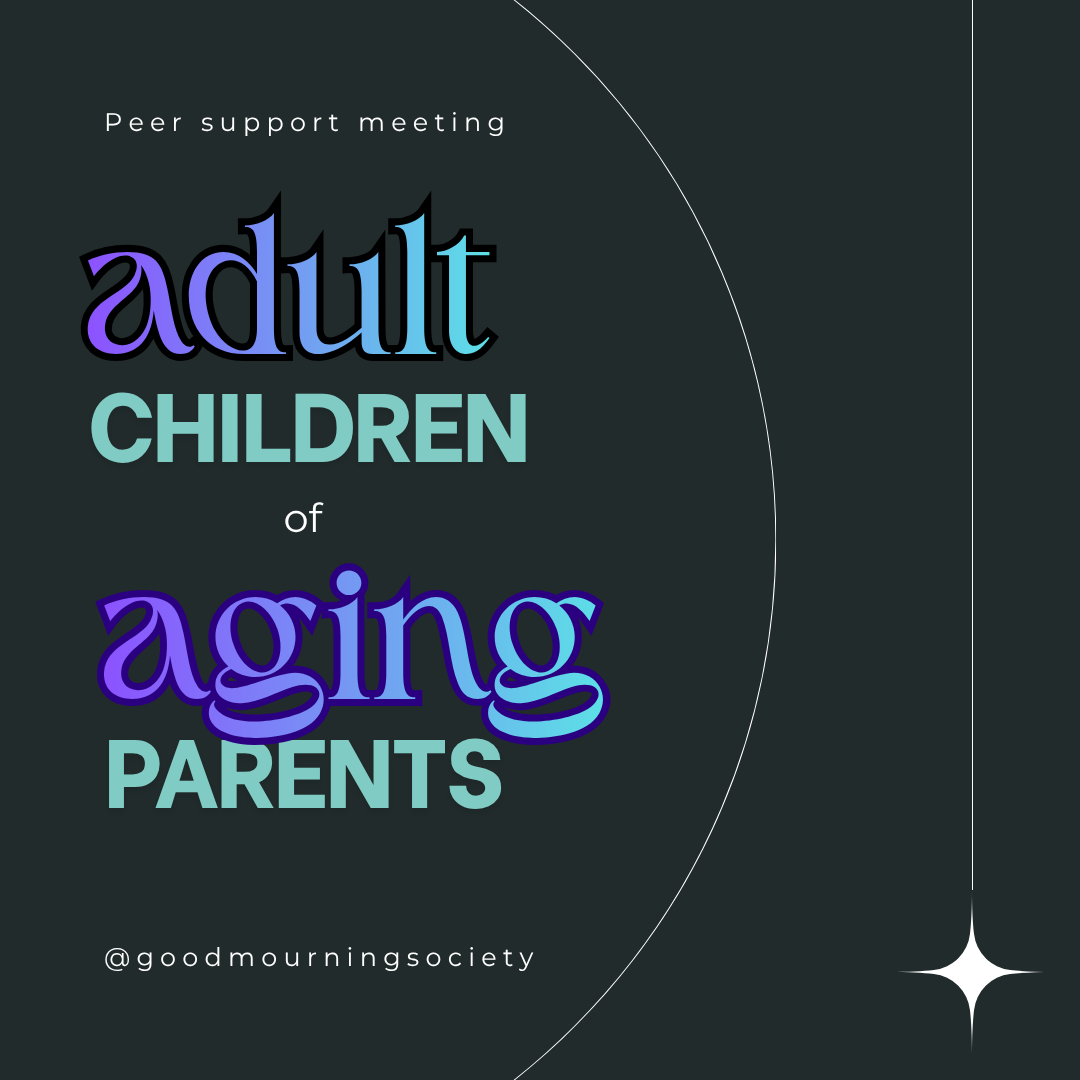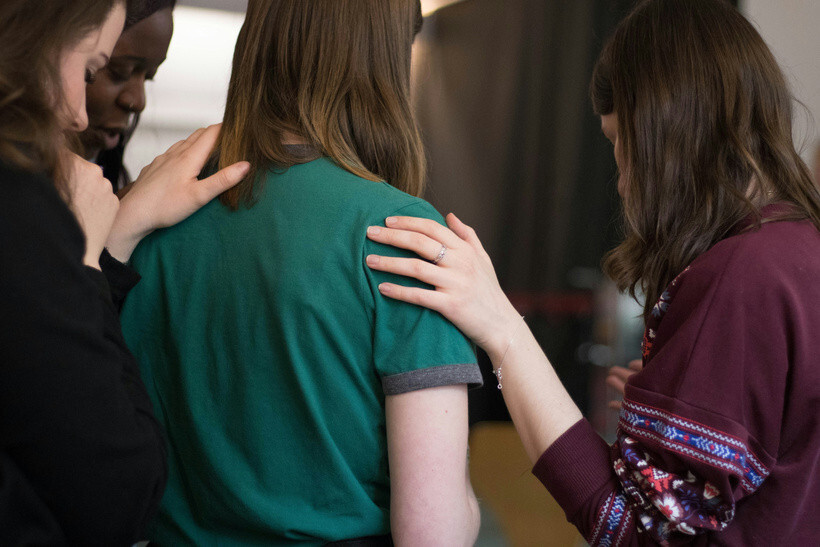Preparing for their end is just the beginning
Millions of us, mostly Gen Xers and Millennials, are in the midst of a slow moving crisis that no one is talking about. As our parents start to reach the last stage of their lives, they do so in a world that looks very different from what they expected. Social services aren’t there to help like they thought, rocky economies have squeezed retirement funds, and costs are through the roof. And who will they turn to for help?
Us.
Are you prepared for what that means? Does the worry keep you up some nights? You aren't the only one, I'm afraid.
You know talking about and planning for things like aging, illness, funeral wishes, and end-of-life planning are important. But for some reason every time you've tried to bring it up, maybe with your aging parent or siblings, the conversation goes off the rails. You start with good intentions and try not to say the "wrong thing," but you feel like you never get anywhere.
Confronting mortality brings out different parts of us all, sometimes in ways that seem the opposite of how we normally behave. And when these types mix together, along with all our other relationship dynamics, things get complicated.
Let's start with you, then move on to them.



Statistics about the aging population
The United States and United Kingdom are just two places facing an unprecedented population situation. Just as Millennials are reaching the prime of life, the generations above teeter on the edge. Living longer, with more health problems, during a serious cost of living crisis.
Luckily, aging and death are inevitable moments in life we can prepare for - if we're willing to put the effort in. That's why we're here!
In 2022 in the US, there were 57.8 million adults age 65+. By 2030, all Baby Boomers will be over 65.
The median income of older adults was $29,740.
In 2021-2022, 37.1 million family caregivers provided unpaid care to an older adult age 65+.
Nearly 1 in 5 Latina and Black women 65+ live in poverty, double the rate for white women and triple that for white men.
In the UK by 2035, 1 in 4 people will be over the age of 65.
The number of pensioners unable to afford basic necessities grew by 300,000 between 2023-2024.
the essentials checklist
If you're starting to get organized, this is the place to start. For each person you're responsible for or helping to support - including yourself - these are the practical and critical items you'll need to take control. From here, you can start to plan.
Do they need help with managing finances? Thinking about establishing Power of Attorney? Worried about health and medications?
This is the list I wish I'd had.
Download it now, completely free.
But how do we start these tough conversations?
Easier said than done, I know.
Knowing your parent is starting to struggle is an entirely different situation to bringing it up with them. Rarely do our parents wake up one day and go, "You know what? I'm going to get rid of all my excess belongings, draw up all my important paperwork, move into a place that's safer and more practical, and give up my car because my driving is no longer safe."
In reality, it's up to us (their adult children) to bring it up. But HOW? What works in one family with one kind of relationship may not work for another, but that doesn't mean anyone is doing anything wrong! This is exactly why I created the Communication Types.
My approach is:
- establish how you approach these conversations. This is influenced by your personality as much as your role in the family.
- get a sense of how they feel about aging and end of life subjects, and if they might be different with different people.
- take what you've learned about yourself (and possibly your siblings), mix it with your parents' approach, and develop tailored ways of diving into productive conversations so everyone walks away feeling heard and respected.

Death Positive Pragmatist
They have thoughts, plans, wishes and are happy to share them with you.

In control

The Procrastinator
They know it's important, really. And there's an old will around here somewhere... there's plenty of time, don't worry.

Why worry?

Anxious Flip-flopper
This type goes through cycles of push/pull. Death anxiety mixed with conflict avoidance = chaos.

Yesnomaybeyesno

Defensive Denial
They are immortal, ageless, timeless and anything that comes close to shattering that illusion is met with hostility.

Don't be morbid

It's Complicated
You're estranged from this type, or very low contact. An added complexity to this already tumultuous stew.

*whew*
Online support meetings for adult children of aging parents
Peer to peer online meeting
As an only child, I understand the unique situation it creates when you have aging parents. The weight and responsibility, the family dynamics... plus, we probably don't have a lot of people around us who understand!






